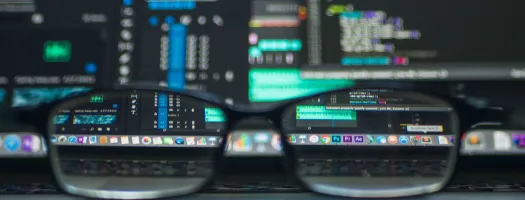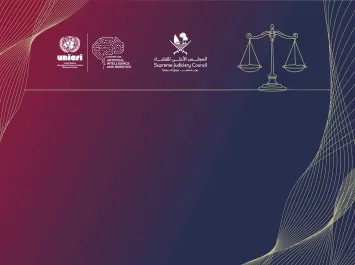FOREWORD
Artificial intelligence (AI) can have, and already is having, a profound impact on our society, from healthcare, agriculture and industry to financial services and education. However, as the United Nations Secretary-General António Guterres stated in his 2018 Strategy on New Technologies, “while these technologies hold great promise, they are not risk-free, and some inspire anxiety and even fear. They can be used to malicious ends or have unintended negative consequences”. AI embodies this duality perhaps more than any other emerging technology today. While it can bring improvements to many sectors, it also has the potential to obstruct the enjoyment of human rights and fundamental freedoms – in particular, the rights to privacy, freedom of thought and expression, and non-discrimination. Thus, any exploration of the use of AI-enabled technologies must always go hand-in-hand with efforts to prevent potential infringement upon human rights. In this context, we have observed many international and regional organizations, national authorities and civil society organizations working on initiatives aimed at putting in place ethical guidelines regarding the use of AI, as well as the emergence of proto-legal frameworks.
This duality is most obviously prevalent online, where increased terrorist activity is a growing challenge that is becoming almost synonymous with modern terrorism. Consider that as part of 2020 Referral Action Day, Europol and 17 Member States identified and assessed for removal as many as 1,906 URLs linking to terrorist content on 180 platforms and websites in one day. Facebook has indicated that over the course of two years, it removed more than 26 million pieces of content from groups such as the Islamic State of Iraq and the Levant (ISIL) and Al-Qaida. The Internet and social media are proving to be powerful tools in the hands of such groups, enabling them to communicate, spread their messages, raise funds, recruit supporters, inspire and coordinate attacks, and target vulnerable persons.
In the United Nations Global-Counter Terrorism Strategy (A/RES/60/288), Member States resolved to work with the United Nations with due regard to confidentiality, respecting human rights and in compliance with other obligations under international law, to explore ways to coordinate efforts at the international and regional levels to counter-terrorism in all its forms and manifestations on the Internet and use the Internet as a tool for countering the spread of terrorism. At the same time, the Strategy recognizes that Member States may require assistance to meet these commitments.
Through the present report – a product of the partnership between the United Nations Counter-Terrorism Centre in the United Nations Office of Counter-Terrorism and the United Nations Interregional Crime and Justice Research Institute through its Centre for Artificial Intelligence and Robotics – we seek to explore how AI can be used to combat the threat of terrorism online.
Recognizing the threat of terrorism, growing rates of digitalization and burgeoning young, vulnerable and online populations in South Asia and South-East Asia, this report provides guidance to law enforcement and counter-terrorism agencies in South Asia and South-East Asia on the potential application of AI to counter terrorism online, as well as on the many human rights, technical and political challenges they will need to consider, and address should they opt to do so.
Our work does not end here. Addressing the challenges identified in this report and unlocking the potential for using AI to counter terrorism will require further in-depth analysis. Our Offices stand ready to support Member States and other counter-terrorism partners to prevent and combat terrorism, in all its forms and manifestations, and to explore innovative and human rights-compliant approaches to do so.
Vladimir Voronkov, Under-Secretary-General United Nations Office of Counter-Terrorism Executive Director United Nations Counter-Terrorism Centre.
Antonia Marie De Meo, Director United Nations Interregional Crime and Justice Research Institute.



